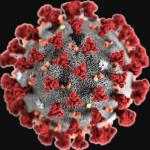This article was originally published at Geopolitical Futures. The original is here.
global public health
What's the best way for young people to avoid having babies and acquiring undesirable microbial species in their nether regions? Abstinence. It works every single time. Young people should wait until they're married.
The mayor of Los Angeles has said that his city will "never be completely open until we have a cure" for the coronavirus.
The novel coronavirus, officially dubbed SARS-CoV-2, and the disease it causes (COVID-19) have continued to surprise all of us. And the surprises have been uniformly negative.
Should politicians make major, society-altering decisions based on polls? Framed that way, most people would probably answer "no." A politician's job is to be a leader, and sticking one's finger in the wind is not anyone's idea of leadership.
When the COVID-19 pandemic finally slows down, there will be one burning question that all of us will want to know the answer to: "Who is to blame for the coronavirus?"
We have gotten used to trolls and political ideologues spreading misinformation about public health. But it's still a surprise when alleged science journalists do it.
By Arne Ruckert, L’Université d’Ottawa/University of Ottawa;
Contrarianism is a tricky thing. Challenging the conventional wisdom – something ACSH routinely does – is necessary because popularly held beliefs are often wrong.
Infectious diseases never go away.












